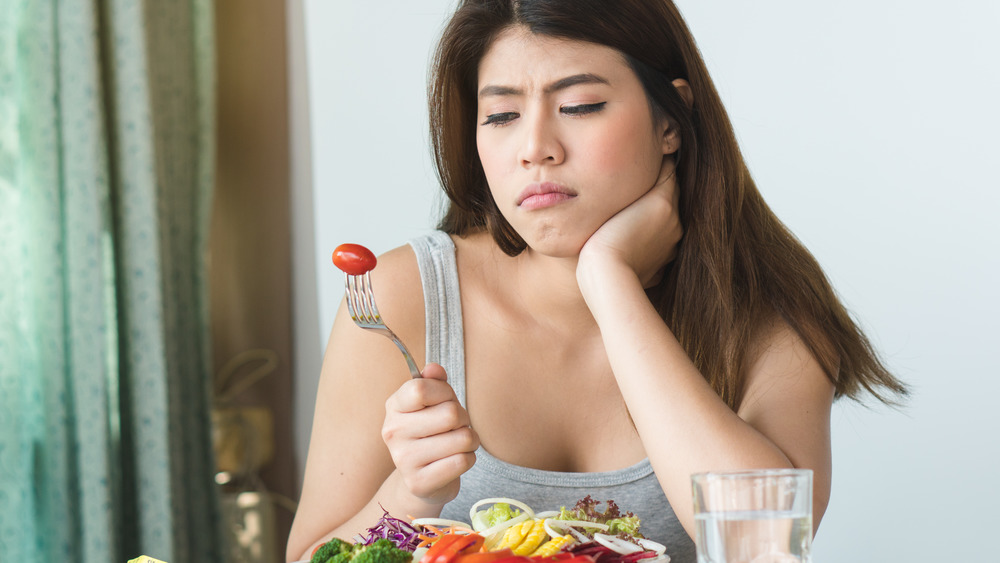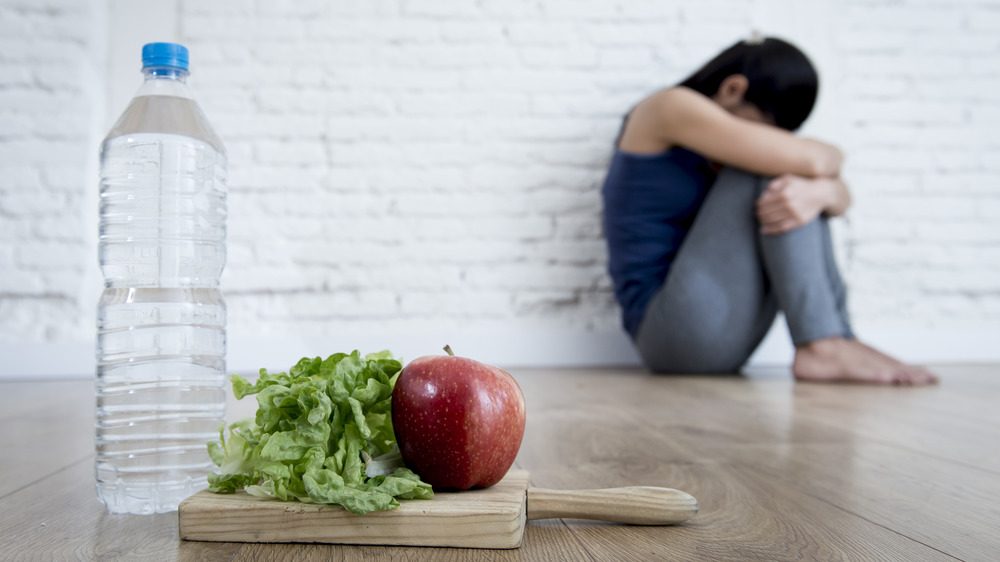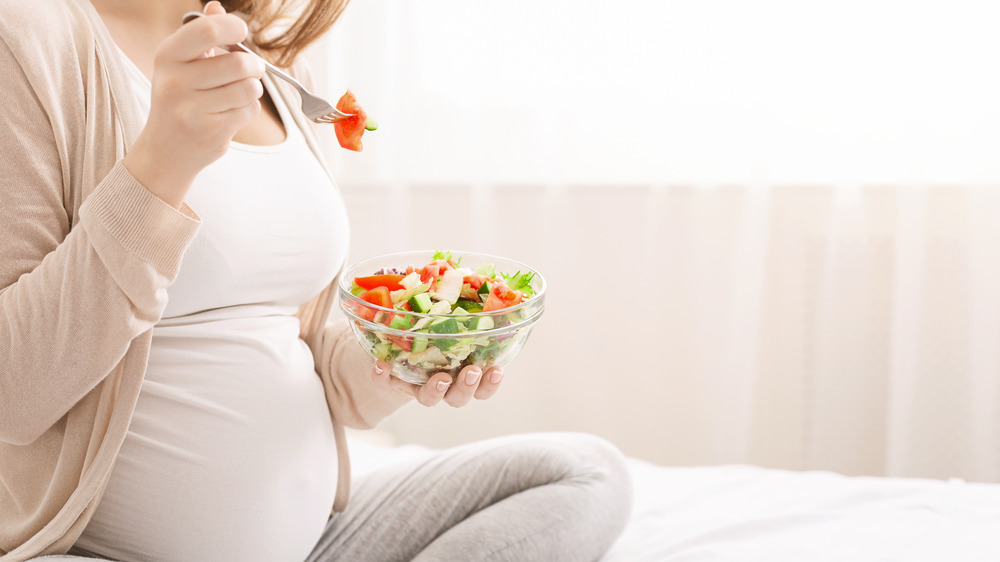Read This Before Starting The Vegan Diet
There are many reasons you might choose to go vegan. Maybe you're doing it for religious reasons, perhaps it's for ethical purposes, or you may have been persuaded to cross over to the plant-side by a loved one. Or it could just be possible that you really do prefer the taste of soy substitutes, fake cheese, and Impossible "meat' products.
Should you choose to adopt a vegan lifestyle because you feel it's going to benefit your health, however, you may be making an incorrect assumption here. As it turns out, a lot of vegan foods really aren't all that good for you, and a vegan diet can contribute to the aging of your skin. Celebrity fitness expert Jillian Michaels decries veganism due to its nutritional deficiencies, while famous former vegan Liam Hemsworth gave up the diet when it gave him a kidney stone. Zooey Deschanel just found veganism too restrictive, saying "This gets in the way of my living too much... F*** it."
If you're still bound and determined to be a vegan, do what you like and what feels right for you, but at least hear what Alicia Galvin RD, a resident dietitian for Sovereign Laboratories, has to say about some of the health risks you could face.
Veganism can lead to dietary deficiencies
Galvin isn't a fan of veganism because she feels there are too many nutritional deficits with such a diet. She points out that vitamin B12 can only be found in animal proteins and other animal-based foods, describing it as "a critical nutrient that is involved with emotional health, neurological health, energy levels, and DNA production." She says that when you eliminate, or even significantly reduce, the amount of animal-based foods you eat, you'll suffer from a B12 deficiency, something she warns "can lead to depression, anxiety, numbness and tingling in the hands and feet, and fatigue, just to name a few."
Yet another vital nutrient Galvin says you'll be short on as a vegan is iron, something that's most easily absorbed from animal foods. She admits that "Yes you can get iron from plant based foods," but explains that "the form of iron in plants is non-heme iron, so it is not utilized as efficiently as the heme-iron in animal foods." Galvin cautions, "As with iron, the bioavailability, or utilization of the protein in plant-based foods is not as strong as protein from animals." She goes on to say that "you also have to eat about 20 percent more protein from plants to account for this."
Veganism is especially ill-advised during pregnancy
If you are, or plan to be, pregnant, Galvin says to delay that vegan diet, since pregnancy brings "increased need for nutrients like iron, B12, and choline, which are best utilized from animal foods." She also mentions the fact that the "food aversions, nausea, and increased protein needs" that often come with pregnancy make it far more difficult to follow this type of diet.
So if your pregnancy cravings should happen to include a thick, juicy steak or even a greasy fast food burger, no need to feel guilty. You can save the planet later, but right now you've got to do what your body (and your baby) deems best. On the list of approved foods that pregnant women are highly encouraged to eat are cheese (the genuine dairy kind), which is packed full of calcium, phosphorus, and magnesium; salmon, a great source of healthy omega-3 fatty acids that promote baby's brain development and vision; and beef, which is high in iron, protein, vitamin B6, vitamin B12, niacin, and choline (and not nearly as bad for you as you might have thought).


